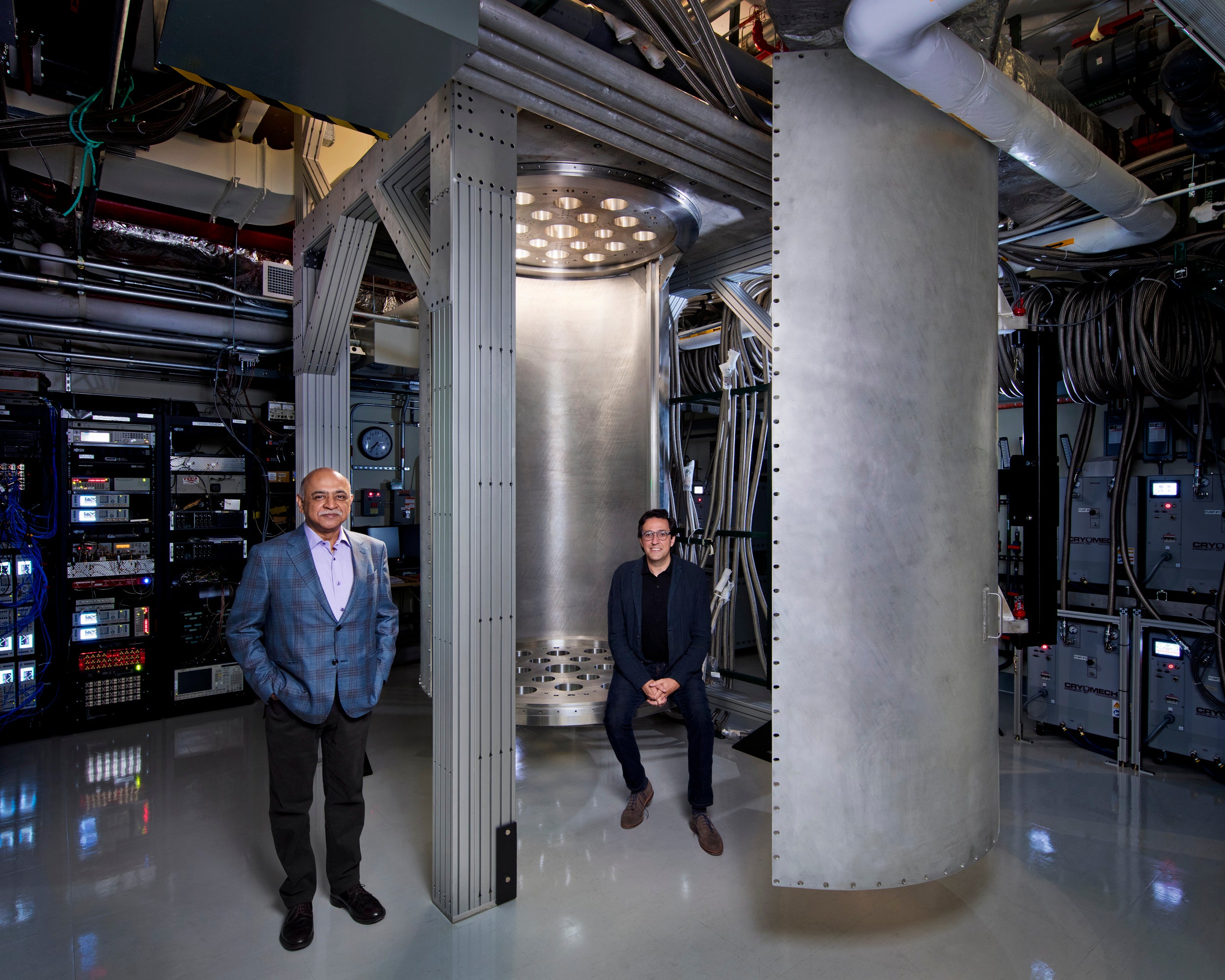
IBM has revealed an ambitious quantum computing roadmap, which includes building a 1,121-qubit machine in 2023.
The tech giant already has 27 and 65 qubit computers – one of the units used to measure computing power – in operation.
IBM plans to release a 127-qubit machine, known as Eagle, in 2021. The following year it aims to achieve 433 qubits with a machine called Osprey.
Beyond 2023 its long-term plan is to build a 1 million qubit quantum computer.
Quantum computers draw upon quantum mechanics to carry out calculations in parallel. Where classical computers store information in a series of 0s and 1s, with each unit known as a ‘bit’, quantum computers use subatomic particles known as qubits.
Qubits can represent numerous combinations of 1 and 0 simultaneously, known as superposition. This means a quantum computer can crunch through calculations in parallel and at a much faster speed than traditional computers. As such, a fully functioning quantum computer can carry out complex calculations beyond the reach of a classical computer, such as protein folding.
How well do you really know your competitors?
Access the most comprehensive Company Profiles on the market, powered by GlobalData. Save hours of research. Gain competitive edge.

Thank you!
Your download email will arrive shortly
Not ready to buy yet? Download a free sample
We are confident about the unique quality of our Company Profiles. However, we want you to make the most beneficial decision for your business, so we offer a free sample that you can download by submitting the below form
By GlobalData“The future’s quantum computer will pick up the slack where classical computers falter, controlling the behaviour of atoms in order to run revolutionary applications across industries, generating world-changing materials or transforming the way we do business,” wrote IBM quantum computing vice president Jay Gambetta in a blog post accompanying the roadmap.
You’re gonna need a bigger fridge
Quantum computers today are often error-prone and require very controlled conditions, including keeping qubits at temperatures as cold as outer space. This means a quantum computer requires a large dilution refrigerator to keep the chips cool.
To meet the goals of its quantum roadmap, IBM plans to build a completely new dilution refrigerator capable of holding the larger chips needed to house more qubits.
IBM will need a 6-foot wide and 12-foot high cooling system to house its proposed 1,121-qubit processor, called IBM Quantum Condor.
Speaking at IBM’s annual Quantum Summit yesterday, Gambetta described IBM’s approach as working on “multiple problems in parallel”.
In October last year, Google made headlines after it claimed ‘quantum supremacy’, which refers to a task that a conventional computer would not be able to perform.
However, many experts – including those at IBM – believe that quantum supremacy is not the best way to measure the efficacy of quantum computers. Instead, IBM prefers to measure ‘quantum volume’ which takes into account the error rate of a machine.
IBM’s error rate is currently around 1% today, but the company aims to bring this down to 0.0001%.
Businesses are already able to use IBM’s small network of quantum computers via IBM Q Network, which sees companies such as JP Morgan, Samsung and Boeing leverage quantum computing power via the cloud.
Read more: IBM unveils first quantum-safe tape drive to protect today’s data tomorrow




